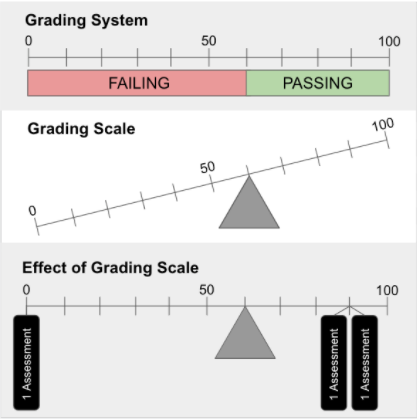
I think a lot about the messages we unintentionally send to students with various grading practices. Here are a few that always stand out to me.
A thread...
1/
A thread...
1/
First off, organizing a grade book by tasks. Simply doing so identifies what we are communicating is the most important aspect of "learning." We are telling students that their grade is a direct representation of the things they do, not the learning they've engaged in.
2/
2/
Another that gets me is holding students accountable for every assignment. You can preach growth mindset all you want, but if kids are held accountable for everything, we are telling them that there's no room for failure and that success is a product of not messing up ever.
3/
3/
Closely connected to that is the act of averaging scores over time. Guess what that means? Growth doesn't matter. If you struggle at first, even if you grow, you'll never see the results that the person who never struggles but never grows does. Equity dies in averaged scores.
4/
4/
Late penalties? Might ruffle some feathers, but often late penalties just tell students that being fast is better than being thorough, that intelligence is a matter of speed. Do deadlines matter? Yes, but there's very little to show that late penalties impact this long-term.
5/
5/
There are some many things that we accept at face value in many assessment and grading practices because we think we're just playing with numbers or putting grades in the grade book. We're communicating values to students. In everything we do, we're communicating values.
6/6
6/6
• • •
Missing some Tweet in this thread? You can try to
force a refresh




